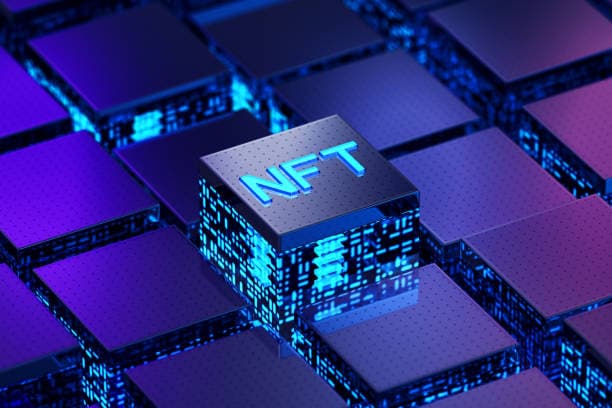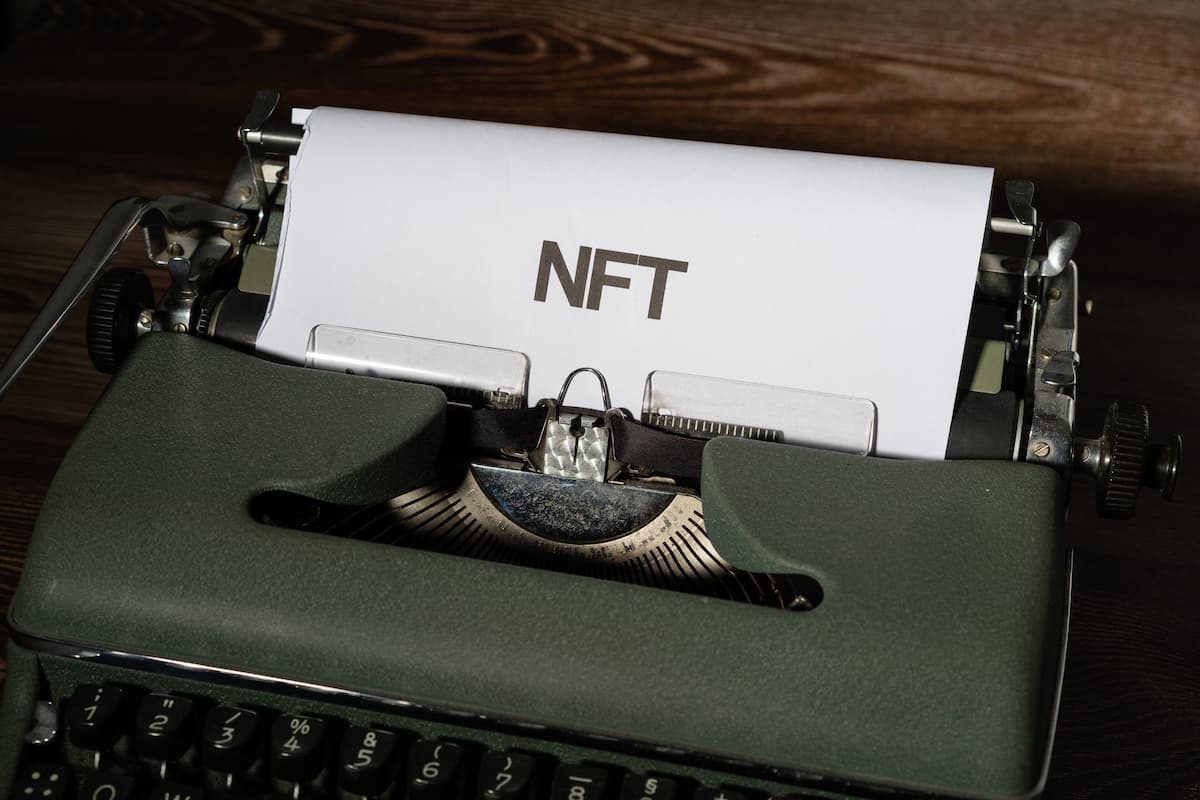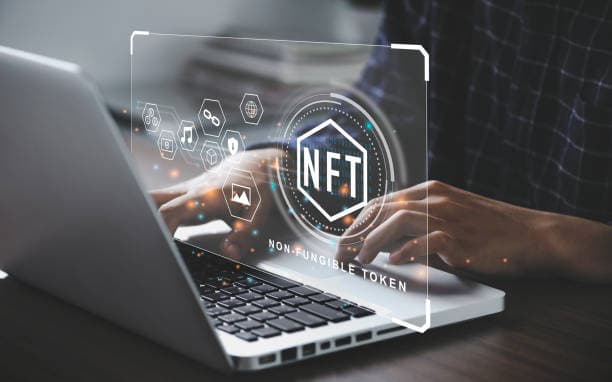In an era where digital technology is inseparable from everyday life, the non-replaceable token (NFT) industry is breaking new ground in gaming content. With the revolutionary introduction of blockchain technology into the gaming industry, NFT games offer not only a unique gaming experience, but also an opportunity for earning money through the creation, exchange and sale of unique digital assets. This new era of gaming is generating interest not only among gamers but also among developers, exploring the boundaries between virtual value and real income. With the challenges and opportunities this new world presents, the interest in making money from NFT Gaming is only heightened. In this context, considering the potential and risks associated with the development of NFT Gaming seems not only relevant but also necessary to understand the future of the digital economy.
The rise of digital treasures: diving into the world of NFT gaming
NFT Gaming, or Non-Futurable Token-based Gaming, represents a pioneering segment in the world of digital entertainment that utilizes blockchain technology to transform the traditional gaming experience. Unlike standard video games, where all game items and characters are owned by the developers, NFT games offer players the opportunity to own unique game assets in the full sense of the word. These assets can range from exclusive characters and rare items to plots of virtual land and even entire buildings within the game world. Thanks to blockchain technology, each NFT is secured with a unique digital certificate that confirms its authenticity and exclusive ownership, making each asset unique and potentially valuable.
The very uniqueness and verifiability of NFT opens up completely new horizons for players and developers. Players get the opportunity not only to buy, sell and exchange their digital assets on specialized platforms, but also to use them in various games that support NFT standards. This creates a unique ecosystem in which the value of a game asset can grow not only due to its rarity and demand within a particular game, but also due to its popularity in the wider NFT community. For developers, NFT games represent an opportunity to create a deeply integrated and interconnected game world where game assets can serve as a bridge between different projects and platforms, enriching the game experience and opening up new avenues for monetization.
Ways to make money on NFT Gaming
NFT Gaming provides many opportunities for earning money, pushing the boundaries of traditional gaming business thanks to the innovations of blockchain technologies. Let’s take a closer look at each of the monetization paths in this promising field.
Game development and sales
Creating Unique Games: Developers can create games where game assets are represented in the form of NFTs. These games can span a wide range of genres, from casual puzzles to large-scale massively multiplayer online (MMO) games where each item, character, or piece of land is unique and owned by the player. Using NFT allows developers to create complete virtual economies, incentivizing players to trade and collect rare assets.
Selling NFT assets: Whether developers are working to create a full-fledged game or smaller projects, they can make money by selling unique game assets. These assets, be it exclusive characters, weapons, or even plots of land in game worlds, can be offered on various NFT marketplaces, attracting both players and collectors.
Investing and trading
Buying and Reselling: Users and investors can buy NFT assets in the hope that their value will rise. This method of earning money is similar to traditional collecting, but in a digital format where the rarity and popularity of an asset can greatly increase its value.
Renting Assets: Owners of valuable NFTs can offer them for rent to other players who wish to use the assets temporarily. This is especially true in games where certain items or characters provide a competitive advantage or open up access to exclusive content.
Content creation and community
Streaming and Learning: Players and content makers can earn money by streaming NFT games or creating tutorials and guides. Platforms such as Twitch or YouTube provide monetization tools for those who gather a large audience interested in the latest trends in the world of NFT and gaming.

Community creation and management: Developing and maintaining active communities around a particular NFT game can be a source of revenue through sponsorships, donations from members, or subscriptions to exclusive content. Community managers, tournament organizers, and fan content creators can benefit by maintaining interest and engagement in their project.
An important aspect of community building and management is the ability to organize events such as tournaments, auctions, and contests that not only strengthen the bond between users, but also attract new participants to the game ecosystem. These events can offer valuable NFTs as prizes, incentivizing community participation and engagement. Additionally, successful community managers can work to create their own NFTs or collaborate with developers to offer unique assets available exclusively to their audience.
In addition to direct earnings, these methods build brand loyalty and awareness within the gaming industry, which can lead to long-term partnerships and new monetization opportunities. By maintaining an active and engaged community, content creators and community managers can explore a variety of monetization avenues, including advertising, sponsorship deals, and merch sales.
Risks and cautions
Investing in NFT Gaming can offer significant earning opportunities, but comes with a number of risks and caveats that potential investors and market participants should pay attention to.
Market volatility
- High price fluctuations: The NFT market is known for its extreme price fluctuations, which can occur within very short time frames. This characteristic of the NFT market subjects investors to a significant risk of financial loss if the value of their assets decreases suddenly. Such volatility stems from various factors, including market sentiment, investor behavior, and the unique nature of each NFT, which can lead to rapid changes in perceived value.
- Speculative Investing: A substantial portion of NFT transactions is driven by speculative investing, where buyers acquire assets with the hope that their value will increase for future resale at a profit. This speculation feeds into the market’s volatility, as prices can soar or plummet based on speculative trends rather than intrinsic value. This environment can lead to the formation of “bubbles,” where prices are driven up by speculation to unsustainable levels, similar to what has been observed in the cryptocurrency market. When these bubbles burst, they can leave investors facing significant losses as the market corrects itself.
Regulation
- Regulatory Uncertainty: The regulatory landscape for NFTs and blockchain-based games is still in its formative stages, leading to a considerable degree of uncertainty for investors and developers alike. The absence of established legal frameworks or the constant evolution of regulations can make it challenging to navigate legal obligations and assess the long-term viability of investments in this space. This uncertainty can deter investment as participants may fear unforeseen legal challenges or changes in the regulatory environment that could adversely affect the market.
- Possible restrictions: Worldwide governments are closely monitoring NFT and blockchain expansion, contemplating regulations that might restrict their application. Potential measures could range from sale and purchase limitations to international transfer restrictions or complete bans on specific NFT transactions. These regulatory efforts risk hindering innovation and narrowing the NFT market, impacting liquidity and value. The prospect of such regulations poses a risk to the NFT sector, as impending constraints may reduce profit opportunities and stifle growth in this emerging area.
Technology Challenges
- Blockchain technology, while revolutionary, is still in a phase of rapid development and experimentation. This means that the infrastructure supporting NFTs might encounter unexpected technical issues or failures, potentially disrupting transactions or leading to loss of data. Such incidents can undermine the reliability of NFT markets and shake investor confidence in the technology’s stability and long-term viability.
- The digital nature of NFTs and their reliance on blockchain technology expose them to a range of security threats, including hacks and vulnerabilities within smart contracts. These security breaches can result in the theft or irretrievable loss of valuable digital assets, causing financial harm to owners and eroding trust in the NFT ecosystem. Despite ongoing efforts to enhance security, the complexity and novelty of the technology mean that new vulnerabilities can emerge.
- The increasing popularity of NFT games challenges the scalability of existing blockchain networks, often leading to congestion. This congestion can slow down transaction processing times and lead to a spike in transaction fees, making it costly for users to perform actions within NFT games or trade on the market. Scalability issues highlight the need for continuous technological advancements and optimizations to accommodate growing user bases and transaction volumes without compromising performance.
Additional risks
- Market saturation: Continuous growth in the number of NFT projects can lead to market saturation, reducing the chances of success for new games and assets.
- Community dependency: The success of NFT projects depends heavily on the community and its activity. Declining interest can significantly reduce the value of assets.
- Environmental Concerns: The use of blockchain technology, especially Proof of Work (PoW), is associated with high energy consumption, which raises environmental concerns and can affect the reputation of the project.
Given all of the above risks, NFT market participants and potential investors are advised to exercise caution and conduct a thorough analysis before making an investment. It is important to remember that, as in any investment activity, there is no guarantee of return on investment or profit.
Conclusion
Making money from NFT Gaming development is a real prospect for innovators, developers, investors and players, due to NFT’s unique characteristics such as uniqueness and global trading, opening up new economic models in the gaming industry. However, along with the earning potential come risks, including market volatility, legal uncertainty and technological challenges that require careful consideration. Success in this field requires an integrated approach that includes strategic vision, technical expertise and adaptability, making it accessible to those who are willing to continuously learn and innovate, paving the way for financial rewards and the opportunity to make their mark on the future of digital entertainment.



